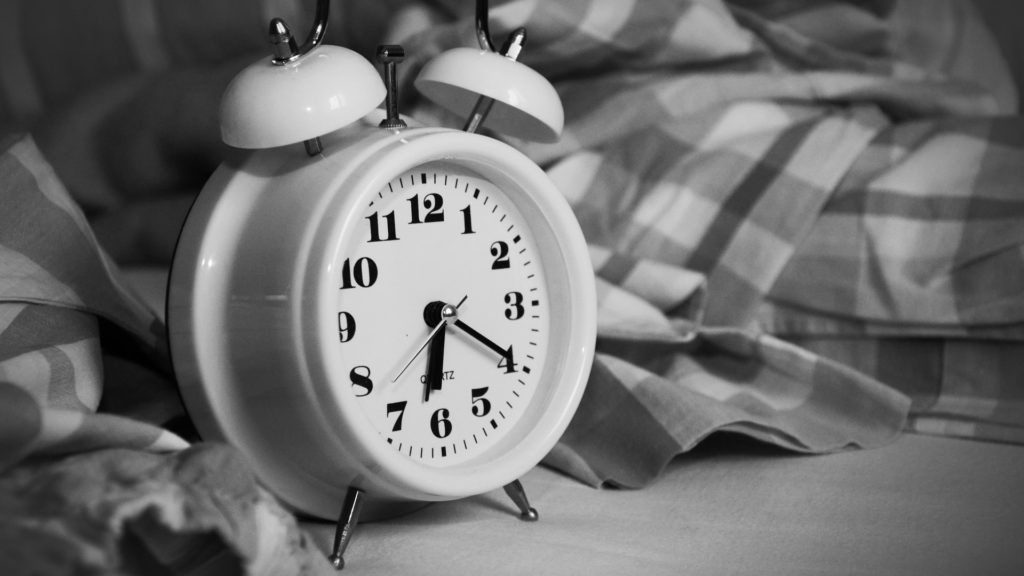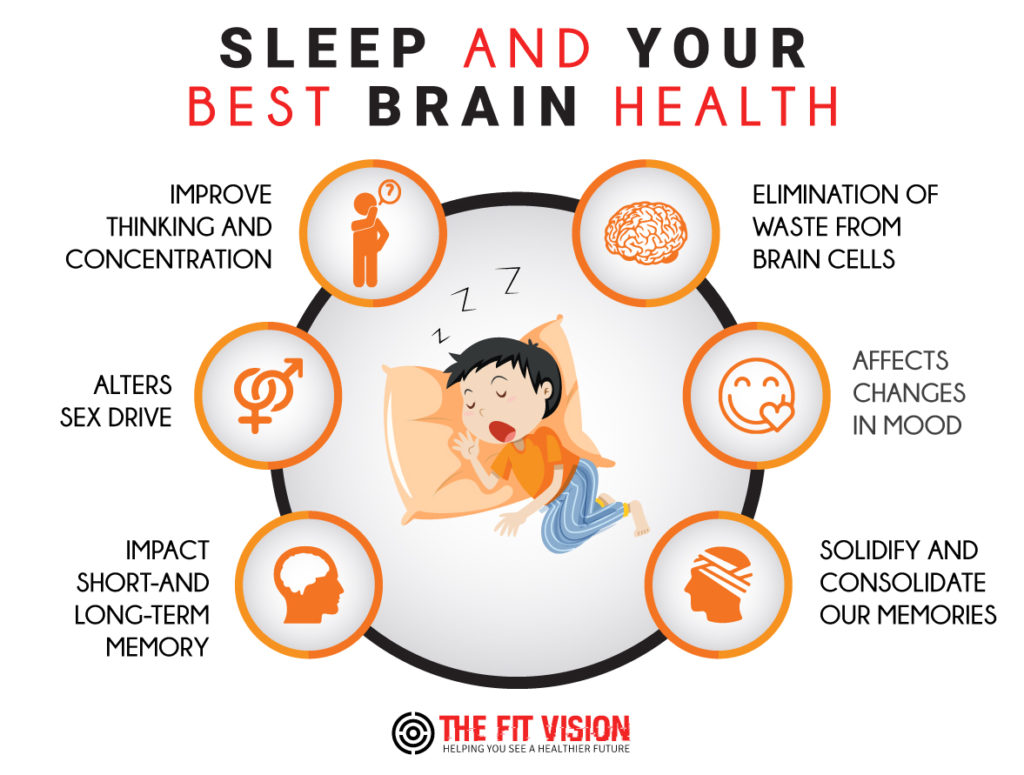SLEEP AND YOUR BEST BRAIN HEALTH

The hustle and bustle we encounter every day – from dealing with work, family responsibilities and unforeseen challenges – make life stressful. That is why everyone deserves to have a good rest after a long day. However, there are times when we struggle to get the amount of sleep that we need. Getting a night of good quality sleep is crucial as sleep directly affects our physical and mental health. The quality of sleep we get every night can take a heavy toll on our productivity, performance, emotional balance and how our brain functions.
People belonging to the population of the world’s best brains are known to receive their adequate amount of sleep. They are generally healthy and physically active. If you wish to be like them or want your child to perform well in class, this article will give you a run-through of what you need to know to get better sleep. To better understand why we need quality sleep, let’s first tackle the science behind it.
The Science of Sleep
Sleep makes up one-fourth to one-third of the human lifespan, but what exactly happens in our mind and body when we sleep?
Several decades ago, most people believed sleep to be a passive activity wherein the mind and body stay inactive. Later on, the best brains in the field of science found out that this is not the case. While you sleep, both the body and brain perform quite a bit of work necessary to have a fit brain and a healthy body.
Sleep has two main parts that we cycle in and out repeatedly throughout the night – REM (rapid eye movement) and non-REM sleep.
Non-REM Sleep: Sleep begins with non-REM sleep, which takes most of the time of the sleep cycle. It starts with a light “N1” stage and progresses to the deep “N3” stage. During these stages, the brain becomes less responsive to outside stimuli. Most of our body and brain functions also slow down.
- REM Sleep: It’s at this part of the sleep cycle where we dream most of the time. The eyes dart back and forth repeatedly behind closed lids, and the brain waves function similarly as to those during wakefulness. The body’s sympathetic nervous system responsible for the “fight or flight” response gets very active during this stage, yet the body completely stays still.
Why Do We Need Sleep?
The importance of sleep has mystified scientists for many years, but modern research tells us that it has an incredibly crucial role to achieve healthy bodies and fit brains.
1. A healthy amount of sleep is essential for keeping fit brains.
Researchers believe that sleep promotes the elimination of waste products from brain cells which happens less efficiently during wakefulness. Removal is crucial in maintaining an alert, healthy and fit brain.
2. Sleep helps solidify and consolidate our memories.
The key to being among the best brains is a good quality sleep. As we go about our day, the mind takes in a vast amount of information. The knowledge and experiences we collect during the day need to be processed and stored. The process of consolidating this information to stay in our memories occurs while we sleep.
3. Our bodies need sleep to work at an optimum function during the day.
Sleep helps to restore chemical balance, rejuvenate, grow muscles, repair tissues and synthesize hormones.
Effects of Sleep Deprivation
The best brains are not only mentally healthy but physically and emotionally fit as well. Thus, they generally tend to function at their optimum best.
Not getting enough of sleep does not only make you feel grumpy and groggy, but its long term effects are real and need to be given careful attention. Sleep deprivation drains your mental abilities and puts your health at risks to some diseases.
The following are some of the detrimental effects of sleep loss.
- Troubles with thinking and concentration
- Negatively impact short- and long-term memory
- Frequent mood changes which may lead to anxiety or depression
- Weakened immunity
- Increased risk for diabetes
- Increased risk for heart diseases
- Low sex drive
- Weight gain
- Poor balance
- High risk to have elevated blood pressure
How Much Sleep Do You Need?
Healthy sleep is essential for everyone since we all need to have a fit brain that can retain tons of information daily. The amount of sleep every individual need varies and mostly depends on age. Children, in particular, need more extended hours of sleep for optimal growth and development. For instance, one-year-olds need around 11-14 hours of sleep per night, school-age children about 9-11 hours, and teenagers between 8 to 10 hours long. For adults, 7-9 hours of sleep would suffice.

Tips to Getting Better Sleep
Although it’s a good idea to make up for lost sleep, it’s never the best solution. The best way to get better sleep and be among the best brains is to have consistent sleep habits and healthy routines. Start with the following simple tips to achieve your sleep needs every night.
1.Stick to Your Sleep Schedule
One of the most effective strategies for sleeping better is sticking to your own body’s natural sleep schedule. The best brains usually sleep and wake up at the same time every day.
If you follow a sleep-wake schedule regularly, you’ll be surprised to know that you will be more energized and refreshed compared to when you sleep the same number of hours at different times of the day.
2. Control Light Exposure
Your sleep-wake cycle is mainly dependent on melatonin, a naturally occurring hormone in the body. It’s one of the best brain supplements which the body produces to initiate sleep. The brain secretes a large amount of melatonin in a dark room which makes you sleepy while it emits less of the sleep hormone when the surrounding is bright.
It’s best to create a restful environment that is ideal for sleeping. A dark and quiet room is vital during the last hour before bedtime. If you want your child to grow up to be among the best brains in his class, keep them from using gadgets and other electronic devices before drifting into sleep. The blue light emitting from these devices can delay the release of the sleep-inducing melatonin.
3. Pay Attention to What You Eat And Drink
Your eating habits significantly affect the quality of your sleep, especially in the last hours before you go to sleep. Make sure your eating habits does not stop you from being among the best brains by taking note of the following:
- Limit caffeine and nicotine. Caffeine can disrupt your sleeping schedule and cause sleep problems of up to 10-12 hours after drinking it, especially if you drink coffee close to bedtime. Moreover, the nicotine found in cigarettes has a stimulating effect that can disrupt your sleep.
- Don’t go to be bed stuffed or hungry. Avoid heavy meals a couple of hours before bedtime, but don’t starve yourself to the point that you get uneasy. Your discomfort might keep you up the whole night.
- Avoid drinking alcohol before bed. Although alcohol might make you sleepy, it can interfere with your sleep cycle later on.
- Consider eating brain foods. Cut back on refined carbs and sugary foods, but instead, include foods good for the brain on your diet.
- Consider taking in food supplements that boost sleep. If you have a hard time getting a good night’s sleep, try taking the best brain supplements, such as products rich with valerian, 5-HTP, melatonin, magnesium, and theanine.
4. Make Exercise Part of Your Daily Routine
Not only is exercise excellent for your overall health, but it also helps promote better sleep. Regular physical activities are known to improve the symptoms of sleep apnea and insomnia. It also increases the length of time you spend in the deep, restorative stage of the sleep cycle. Moreover, avoid exercising too close to bedtime as exercise also elevates the level of the stress-inducing hormone cortisol.
5. Limit Your Daytime Naps
While it is true that napping during the day is an excellent way to restore lost sleep, it’s best to be smart about it. Long naps can interfere with your sleep at night, so try to limit your naps to 15-20 minutes and avoid doing it so late in the day.
6. Manage Worries
During the last hour before you sleep, try to resolve your worries. Wind down and try to clear your head. Calming down hours before you decide to fall asleep is crucial to getting better sleep. Stress management and meditation can also help ease your anxiety.
Conclusion
While some factors that interfere with sleep are out of our control, we can make simple yet significant changes to our bedtime habits or in our daytime routine. Considering brain foods on our diet, exercising regularly and managing our worries are just some examples. Be among the best brains by ensuring that you practice habits that promote a night of healthy sleep.
In times when you have a severe problem of drifting to sleep every night, it’s better to consult your doctor. Early identification and treatment of the cause of your sleepless nights can help you get the better sleep you deserve.
Learn about meditation to help sleep and keep a healthy brain right here.